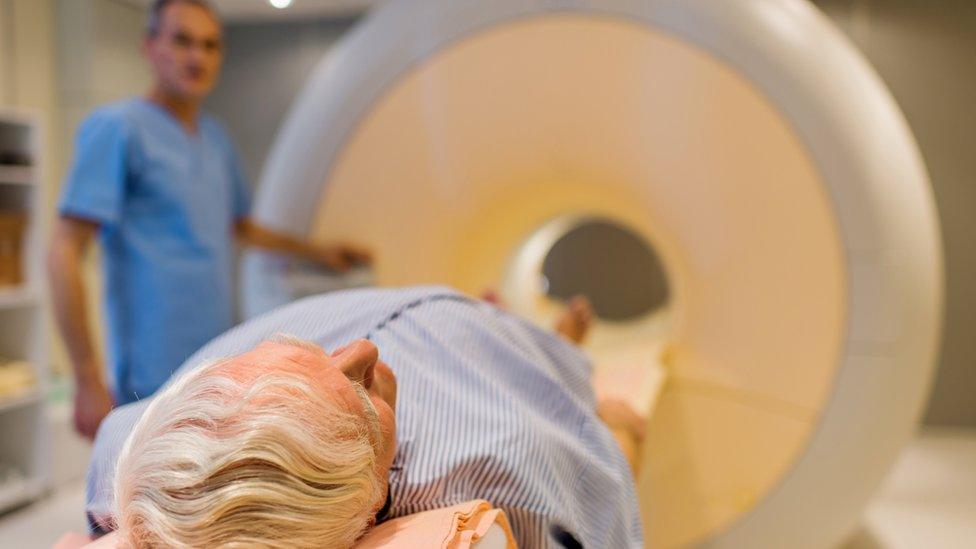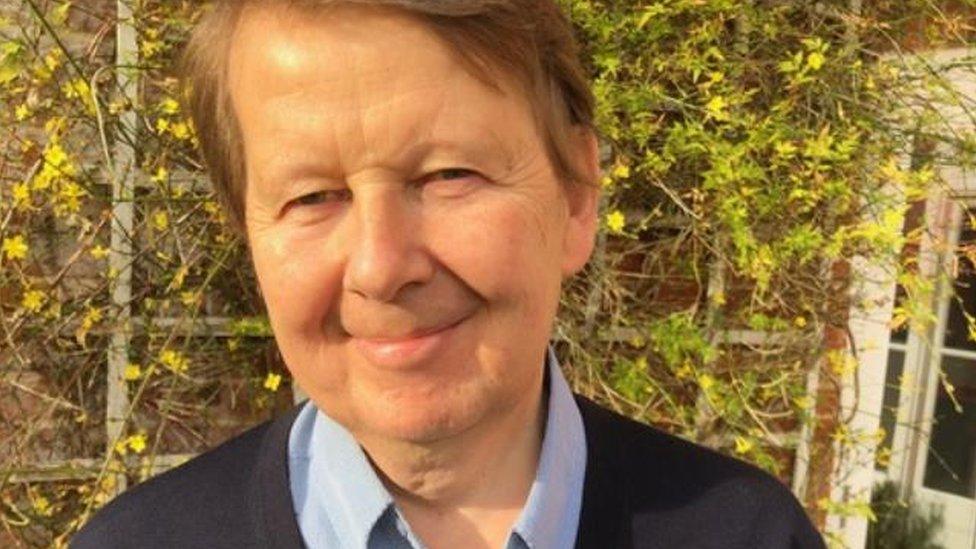Prostate screening could be ready in five years
- Published

Screening for prostate cancer could be possible in the next five years, according to one of the UK's leading experts.
Prof Ros Eeles, from the Institute of Cancer Research, said advances in genetics and medical imaging were making it possible.
About 50,000 people in the UK are diagnosed with the disease each year, and nearly 12,000 die.
NHS England said prostate screening had been notoriously tricky.
Despite it being one of the most common cancers, there is no equivalent of the regular mammograms that detect breast cancer.
There is a blood test that looks for levels of a protein called prostate specific antigen (PSA). But it is controversial and the UK's National Screening Committee does not recommend it.
PSA tests are used to guide doctors and help monitor tumours. But using them to screen healthy people means they miss some cancers and cannot distinguish between people with high PSA levels who need treatment and those who do not.
Prostate cancer can be slow growing and tends to affect people in old age. So despite being fatal for some, others can have it growing in their body without it knocking years off their life.
Prof Eeles said only one in 12 men with high PSA levels and aged over 55 needed treatment. The other 11 could have therapy, with harmful side effects, for a tumour that would not have caused them any problems.
"We really need to get better than that. In the breast screening programme it's three to one," she said.
Medical progress
She was speaking to BBC Radio 4's Today programme, which is being guest edited by Lord Dobbs. The Conservative peer was diagnosed with prostate cancer this year and the disease has killed his father and his brother.
Prof Eeles said medical advances in understanding who was born at greater risk, blood tests and in scanning the body could lead to a screening programme.
She told the BBC: "With the advances in genetics and also imaging, particularly MRI, realistically we do need some more data, but we're probably looking at getting close to a tailored screening programme in the next three to five years."
She added: "We might need to use all of them together… so we can find those who have significant disease."
Symptoms of prostate cancer include:
needing to pee more frequently particularly at night
difficulty starting to pee, weak flow and it taking a long time
blood in urine or semen
Prof Peter Johnson, the national clinical director for cancer at NHS England, said better treatments had improved survival from the disease, but a screening programme for prostate cancer has proved difficult.
He said: "The reason it is tricky is because they [prostate cancers] tend to grow more slowly.
"The things which are slower, which creep up on you, often produce much less disturbance in the body so it is very important we keep looking and there is a lot of research in this area."
He also warned the pandemic meant thousands of people who needed treatment had not even been diagnosed.
Related topics
- Published27 January 2020

- Published20 October 2021
